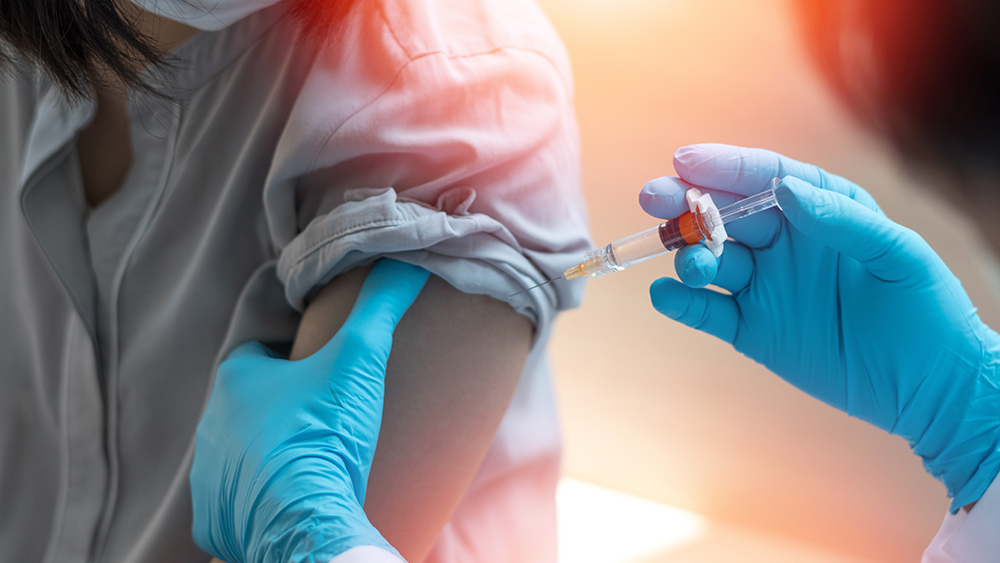Sweden and Denmark halt rollout of Moderna’s COVID-19 vaccine for younger individuals
10/12/2021 / By Zoey Sky

Sweden and Denmark have suspended the rollout of Moderna’s Wuhan coronavirus (COVID-19) vaccine in younger individuals due to negative side effects.
The Swedish health authority has quoted new data about the increased risk of heart inflammation as the primary reason for stopping inoculations in people born 1991 or later. On the other hand, Denmark has announced that it will stop giving the vaccine to people younger than 18.
Sweden and Denmark are considering Pfizer’s COVID-19 vaccine as a replacement. Like the Moderna’s, Pfizer vaccine uses messenger RNA technology to trigger an immune reaction.
Myocarditis and pericarditis, both types of inflammation of the heart, are known as side effects of the coronavirus vaccines. Heart inflammation is also a symptom of many viral infections like coronavirus. The likelihood of developing the condition after infection is greater after inoculation.
Back in June, the Centers for Disease Control and Prevention (CDC) issued a warning that young males in America were at an increased risk of myocarditis after receiving Moderna and Pfizer vaccines.
Coronavirus vaccines and myocarditis risk
According to a recent study from Kaiser Permanente Southern California, seven out of every one million people who received a two-dose coronavirus vaccine could develop myocarditis.
Myocarditis can resolve itself but the condition can be dangerous because heart inflammation can often cause symptoms like chest pain, fatigue and shortness of breath. If you have an inflamed heart, you have a higher risk for heart failure, heart attacks and strokes.
Attempting strenuous physical activity with myocarditis can also result in sudden cardiac arrest or death.
Anders Tegnell, Sweden’s chief public health researcher, said that the country is closely monitoring the situation to make sure that coronavirus vaccinations are “constantly as safe as possible, while also providing protection.”
According to Sweden’s public health watchdog, a new preliminary analysis from the Nordic region revealed that that the connection between vaccination and heart inflammation is clearest with the Moderna shot, particularly after receiving the second dose. According to the data, the higher risk comes within four weeks of vaccination, and especially in the first two weeks.
Moderna CEO Stephane Bancel explains that larger data sets, along with real-world data from the U.S., suggests that the risk of myocarditis is similar between the two vaccines.
In a misguided attempt to reassure the public, Bancel says that the risk of contracting myocarditis from coronavirus is greater than the chances of coming down with the heart condition after getting vaccinated. (Related: Sweden, Denmark halt use of Moderna’s COVID-19 vaccine for younger age groups.)
Tegnell notes that if you have recently been vaccinated with a first or second dose of the Moderna vaccine, you don’t need to worry because the risk is “very small.”
Despite reassurances that the COVID-19 vaccines are safe for public use, other countries are starting to see the truth. Earlier this month, Slovenia halted the use of the Johnson & Johnson vaccine following the tragic death of a young woman who had received it.
Earlier this year, several countries placed age restrictions on AstraZeneca’s COVID-19 vaccine because it was linked to severe cases of blood clots.
Visit Immunization.news to read more articles about these allegedly safe coronavirus vaccines.
Sources include:
Tagged Under: adverse effects, Big Pharma, Blood clots, Cardiac Arrest, coronavirus, covid-19, COVID-19 vaccine, heart attack, heart failure, heart health, heart inflammation, Moderna, myocarditis, pharmaceutical fraud, vaccine damage, vaccine injury
RECENT NEWS & ARTICLES
PharmaceuticalFraud.com is a fact-based public education website published by Pharmaceutical Fraud Features, LLC.
All content copyright © 2018 by Pharmaceutical Fraud Features, LLC.
Contact Us with Tips or Corrections
All trademarks, registered trademarks and servicemarks mentioned on this site are the property of their respective owners.





















